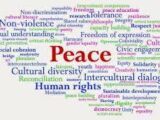Intercultural Understandings and Health: A Philosophical Perspective
Working with people suffering was a learning path for me on two different ends. First I learnt about the people suffering and secondly, I learned about myself. Surprisingly learning about myself turned out to be more difficult and more painful than learning about patients. I am deeply grateful to all patients in different cultural contexts for opening up and sharing with me their inner experiences. Over time I saw better that the inner experience is expressed through body language. The way people walk, their postures, their gestures and their mimics as well as the way they talk (not necessarily the content of their speech) is an expression of their inner life. The experienced observer can connect to the patient due to what he perceives. Looking at clinical work from the perspective I just described, it is obvious that connecting with patients, creating confidence and trust, and giving suffering people the feeling of « you are safe » depends on the state of consciousness of the clinician. That’s exactly the point I had to grow. I realized that, in order to become a systemic clinician, a health professional taking fully into account the psychological and somatic experience of a patient, I had to be better connected with myself. Meaning I had to become an observer of myself.
Observation is the most noble, gentle and complete strategy to learn patients. The second strategy is interviewing patients. Suffering people have one single priority. They want to be better. They want their quality of life to improve. Some are more willing to work and contribute to become better, some are less motivated. The clinicians give a hand with the complexity of patients’ life contexts. The more comprehensive the clinicians understands the patient’s life situation, the more he will be able to see the priorities and give assistance.
